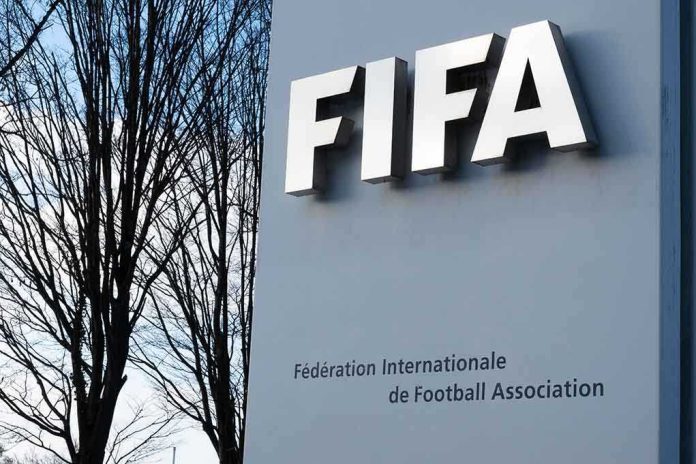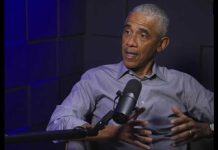
The 2025 FIFA Club World Cup final promises more drama off the field than on it as President Donald Trump confirms his attendance—just as FIFA opens a glitzy new office inside Trump Tower, sending global soccer elites into a tailspin and prompting fresh scrutiny of the ever-cozy Trump-FIFA alliance.
At a Glance
- President Trump will attend the expanded FIFA Club World Cup Final at MetLife Stadium, NJ, on July 13, 2025.
- FIFA opened a representative office and Club World Cup trophy exhibition at Trump Tower, solidifying ties with Trump’s administration.
- Security and logistics for the event have been dramatically increased, with $625 million allocated for World Cup security.
- European soccer stakeholders voice discomfort over Trump’s participation and the FIFA-Trump relationship, citing legal and ethical concerns.
- The event serves as a major test case ahead of the 2026 World Cup in the U.S., with Trump and FIFA seeking political and commercial gains.
Trump and FIFA: A Relationship That Raises Eyebrows—Everywhere But in Trump Tower
FIFA’s decision to open a plush new office at Trump Tower isn’t just another ribbon-cutting; it’s a billboard-sized signal to the world that U.S. political muscle is now fully embedded in global soccer’s inner sanctum. The Club World Cup trophy sits on display in the lobby, a fitting symbol for the ongoing bromance between President Trump and FIFA President Gianni Infantino. Trump’s confirmation that he’ll attend the final—“I’ll be going to the game”—sent international soccer bureaucrats scrambling for the smelling salts.
While most Americans are wondering whether their tax dollars will cover yet another international spectacle, the Trump administration is busy touting U.S. leadership in sports as the new face of American exceptionalism. This is not lost on Infantino, who has publicly gushed over the “incredible” support from the White House. For those keeping score, the 2025 Club World Cup is the largest ever, with 32 clubs from 72 countries—so of course, the world’s most controversial president is at the center of the action.
Security, Spending, and the Optics of Presidential Pageantry
Hosting the final at MetLife Stadium isn’t just a logistical challenge; it’s a security and spending bonanza. With Trump’s presence, the U.S. government signed off on a cool $625 million in taxpayer-funded security measures, setting new records for what it takes to keep a president safe at a soccer match. Expect to see more armored SUVs than goal posts and more Secret Service agents than strikers. The media circus is gearing up, with broadcasters like DAZN and TNT Sports bracing for a global audience and the inevitable circus of political protests, fervent fandom, and breathless commentary about “historic moments.”
Local businesses and hotels in New Jersey are thrilled—who wouldn’t be, when millions of dollars are about to be spent by soccer tourists and global media? But for American taxpayers, especially those already fuming about government waste and misplaced priorities, this looks like another example of overreach and political theater masquerading as patriotism. It’s a reminder that when government dollars are on the line, spectacle always wins over substance.
Global Soccer, Local Politics, and the Art of the Spectacle
The Club World Cup final is more than a sporting event; it’s a high-octane test run for the 2026 FIFA World Cup, which will dwarf this year’s tournament in scale, spending, and security. Trump’s attendance, at the invitation of New Jersey Governor Phil Murphy, is being spun as a symbol of international cooperation and American hospitality. But not everyone is buying the narrative. European football officials—already queasy about Trump’s legal baggage—have openly questioned FIFA’s wisdom in aligning so closely with such a polarizing figure. For them, the optics are bad enough; the ethics, worse.
Meanwhile, U.S. officials and FIFA’s leadership continue to present the event as a model of public-private partnership. The realpolitik is clear: both sides stand to gain from the exposure, the money, and the global spotlight. Trump gets to burnish his credentials as a world leader and dealmaker, while FIFA locks in U.S. support for its most ambitious tournament ever. For everyone else, it’s a front-row seat to the spectacle of power, politics, and sports colliding in full view of the world’s cameras.



